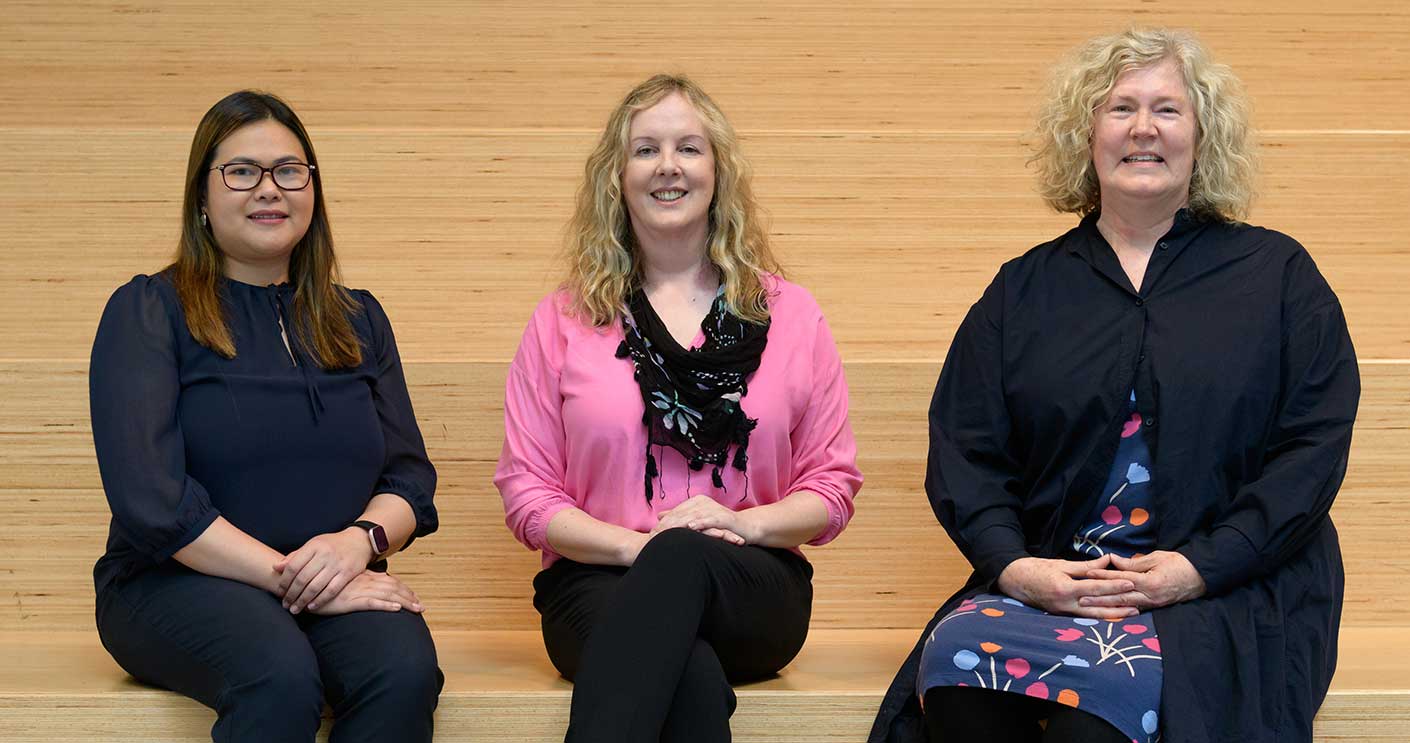Did you know that more than a quarter of staff at Macquarie are women aged between 45 and 59?
And that Western women typically reach menopause in their early 50s, with symptoms that vary widely and can last for many years? Or that thousands of women leave their jobs each year because of menopausal symptoms?
Menopause has moved onto the workplace agenda in recent years, thanks to women like Chief Scientist and Macquarie alumni Dr Cathy Foley speaking out about their own experiences.
It’s a long overdue conversation: with concerning increases in poverty and homelessness among older women, keeping women employed through this time helps them retain financial independence as well as enjoying the benefits of working later in life.
A workplace taboo
Menopause often occurs at the point in women’s careers when they should be holding senior positions and being trailblazers and role models for younger people.
However, according to Professor Rebecca Mitchell from Macquarie Business School’s Health and Wellbeing Research Unit, it has been a taboo subject and women’s careers have suffered as a result.
“There remains a taboo in workplaces related to women’s physical realities – issues such as menstruation and menopause are rarely (if ever) discussed openly, Rebecca says. Women who have experienced chemotherapy and other medical treatments may also enter menopause at a much younger age.
“The silence surrounding women’s experiences of menstruation and menopause, as well as the impact of these experiences at work, is coupled by a relative lack of research that makes it difficult for managers to know how to best support women employees,” she adds.
“This has significant implications for women, many of whom keep silent about the stressful work-relevant impact of menopause.
“Importantly, organisations (as well as their women employees) suffer because the expertise and leadership potential of women in their 40s and 50s is not realised, even though this is a time at which many employees are operating at their peak.”
Shining a light on a complex workplace issue
At Macquarie, work is underway to include menopause as a recognised life stage supported by the University and provide relevant resources on the staff wellbeing website. This includes links to information provided by the Australian Menopause Society (via its consumer information tab), an e-book from our EAP provider, Benestar and access to the Menopause: it’s not a disease webinar by MQ Health’s Dr Heather Knox. Benestar also has a My Coach service for people leaders, so if managers are unsure about how to support someone, they can call anytime for a confidential chat and to get expert guidance.
Professor Mitchell says that universities are ideally placed to lead the way in showing other employers the value of this workplace cohort, in part due to their demographic profile.
“More importantly, this area is still under-researched and therefore the role of universities in building and disseminating knowledge is particularly important,” she says. “What better way to achieve an enriched understanding of this complex workplace issue than through a research and practice collaboration?”
Support strategies
With menopausal symptoms (and particularly peri-menopausal) varying widely between women, a one-size-fits-all approach is not always beneficial.
“Strategies that are likely to benefit women range from more flexible working conditions through to training and development for organisational leaders,” says Professor Mitchell.
“Further, the potential to support women to thrive during this period is poorly understood – this is somewhat ironic as some of the possible consequences of menopause (such as increased assertiveness) can serve women well at work.”
World Menopause Day is on today, 18 October. Read more about Macquarie Business School research into menopause in the workplace on The Lighthouse.


 Back to homepage
Back to homepage